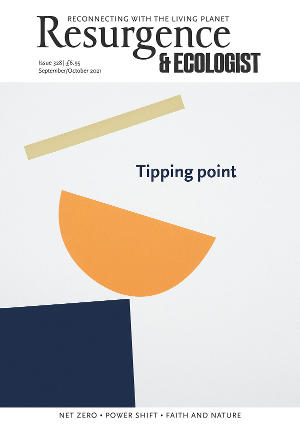In amongst the high-rise buildings and construction projects of the urban redevelopment at King’s Cross, London, Global Generation (GG) has over the past 12 years established a series of movable community gardens, originally known as Skip Gardens. The latest incarnation is the Story Garden, built with more than 650 adults and almost 300 children and young people. “We’re not just building the garden but also building skills, relationships, confidence and resilience!” This book by GG’s founder and co-director, New Zealander Jane Riddiford, is an account of her learning to lead collaboratively through the evolution of this work.
The reader must from the start understand what Riddiford means by ‘leadership’. She is not interested in leadership as command and control, but leadership as ongoing collaborative inquiry. “Remembering who you are is key.” Riddiford’s roots are in the pioneer culture of New Zealand: her not-so-distant ancestors participated in the clearing of forest to make space for sheep. From this, she holds a romantic relationship with the pioneering, ‘can do’ spirit of New Zealanders, while also being aware of the shadow of opportunism that stripped the land bare. Riddiford – I should say I have known her and her work, although not closely, for many years – shows both sides. She is charismatic, inspirational, full of ideas and initiatives, as well as deeply collaborative, respectful of the contribution of others. She shows how her cultural conditioning and colonialist background lead her to think very carefully about talking too much and taking control. Yet while placing primary value on inquiry, she will not stick to this too rigidly: leadership is a dance between collaboration and individualist endeavour.
The seeds of Global Generation were sown back in 2002, when Riddiford was involved in taking a group of inner-city children to camp in the countryside. Many of them had never left the city. Riddiford was inspired both by their terror of the dark and “anything that moved”, and by their learning from the experience: “To invite teenagers to embrace nature connection activities slows them down and brings out a more open, patient, creative energy.”
The first garden was created on the rooftop of a high-rise block, which provided a base from which Riddiford forged relationships with the CEO of Argent, the developer of the King’s Cross site, as well as with the Guardian newspaper and with other corporate bodies. From these early steps evolved the idea of growing vegetables in skips that could be moved to different sites as the development proceeded. The project works continually between the young people, the construction workers, local business, volunteers and full-time employees.
However, “focussing on the skips alone misses the point … it seemed doubtful to me that growing vegetables, changing lightbulbs, and counting carbon … were enough to change the world.” Drawing in particular on the ancient Māori legend of three baskets of knowledge, Riddiford developed what she calls the ‘triple gem’ that places all activities in the context of ‘I, We, the Planet’ and the story of the vast, expanding universe. This enables the young people to explore inner, outer and collective dimensions of who they are and what they are part of. As one of the GG Generators puts it, “What’s different about what we do at Global Generation is, not only do we change from the outside but we change from the inside too.”
The key is in the name: ‘Global Generation’ refers to that generation of people who have a global perspective, who can generate activities that will support the planet and all who inhabit it. Of course, it is about working with and for the young people. But Riddiford writes that she often finds herself saying, “We are not doing this for you, we are doing this because you are needed to grow a different kind of future.”
It is only fair to the potential reader to say that I struggled at times to find my way through the storyline: the book needed a stronger editorial hand. Nevertheless, this is a treasure trove of ideas, practices and inspiration for anybody involved in ecological and community development.







